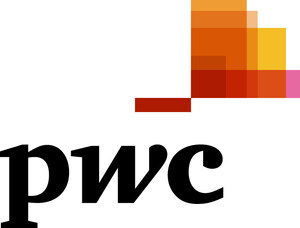NEW YORK, Jan. 24, 2012 /PRNewswire/ -- Access to high growth economies with large populations, rising affluence and the potential for innovation make presence in growth markets a necessity for many companies, according to a new global report by PwC entitled, "Getting on the Right Side of the Delta: A Deal-maker's Guide to Growth Economies." The PwC study, which includes an analysis of 200 deals (both publicly announced and private deals for which PwC was an advisor) and interviews with 20 leading dealmakers around the world, provides an in-depth assessment of the most common pitfalls and risks encountered when pursuing deals in growth markets. Among key findings, PwC provides recommendations to maximize likelihood of deal success when pursuing deals in growth markets.
(Logo: http://photos.prnewswire.com/prnh/20100917/NY66894LOGO )
PwC's research found that advantages to pursuing deals in growth markets include low cost manufacturing, access to natural resources, market access for basic global products, buyers with access to core operations, innovation capabilities and capital. While growth markets continue to present optimal opportunities, surveyed dealmakers acknowledged that deals in these markets are inherently more risky with a bigger range of potential deal outcomes due to specific nuances and regulatory demands from region to region.
"Increased regulatory scrutiny and pressure from stakeholders requires that dealmakers provide more certainty around the outcome of a deal. In today's deal market, successful transactions are being completed by a very aggressive group of buyers, creating more competition for prized assets," says Martyn Curragh, PwC's U.S. Deals leader. "Both these trends point to a greater need for deals to get done on an efficient timeline with the right industry or geographic expertise. With greater growth opportunities in emerging markets, knowledge of these geographies, regional culture and their industries will be especially critical to deal success."
According to PwC's research, the majority of deal risks typically relate to one or more of three key elements: the asset itself, the seller, or the government. The most common barrier to deal completion is an inability to get comfortable with valuations, explaining 40% of failed deals in PwC's data set. The most common problems that emerge after a deal closes concern partnering, causing 30% of deal problems post-deal. Beyond partnering, the same issues that prevent deals from closing also frequently emerge after a deal completes (direct government interference, problems with financial information, and non-compliant business practices).
Among key insights from the report, PwC lists five key recommendations for dealmakers when pursuing deals in growth markets:
- Understand the strategic rationale early – Due diligence will be imperfect and valuations are high, so a strong strategic rationale is critical to completing a deal. Educate the board and management, and be sure to address any preconceived notions or concerns about growth economies.
- Prioritize markets –Limiting investments in individual markets allows a company to focus scarce resources on fewer markets to increase the chances of building scale positions that can support future growth.
- Go there – Although there are common themes across growth economies, each market is different. Being on the ground helps reduce risks involving stakeholders concerns; quality of diligence; understanding valuations; identifying the right partner; and working with the local government to obtain regulatory and compliance approvals.
- Put key people in place – Ultimately, the people involved will most influence whether a deal is successful or not. Companies should identify a short-list of local advisors and build a dedicated team of deal specialists.
- Adopt proven approaches for executing deals in growth markets – A 'normal' deal approach is not appropriate for a growth market.
For a copy of the full study, visit: www.pwc.com/gx/en/deals/doing-deals-in-growth-economies
PwC's Transaction Services professionals help companies make informed and empowered investment, divestment, capital market and reorganization decisions. We assist clients with due diligence, M&A strategy, integration, valuation, accounting, financial reporting, and capital raising on both the buy and sell side of a deal. Our deal professionals help clients understand the risks in transactions, so they can be confident they are making informed strategic decisions. From their deal negotiations, to capturing synergies during integration, we help clients gain value; and ultimately, deliver this value to stakeholders. For companies in distressed situations, we advise on crisis avoidance, financial and operational restructuring and bankruptcy. With approximately 1,200 deal professionals in 16 cities in the U.S. and over 9,500 deal professionals in over 90 countries, experienced teams are deployed with deep industry and local market knowledge, and technical experience tailored to each client's situation. Our field-proven, globally consistent, controlled deal process helps clients minimize their risks, progress with the right deals, and capture value both at the deal table and after the deal closes.
For more information about M&A and related PwC services, please visit: www.pwc.com/ustransactionservices
PwC firms help organizations and individuals create the value they're looking for. We're a network of firms in 158 countries with close to 169,000 people who are committed to delivering quality in assurance, tax and advisory services. Tell us what matters to you and find out more by visiting us at www.pwc.com.
© 2012 PricewaterhouseCoopers LLP, a Delaware limited liability partnership. All rights reserved. PwC refers to the US member firm, and may sometimes refer to the PwC network. Each member firm is a separate legal entity. Please see www.pwc.com/structure for further details.
SOURCE PwC
WANT YOUR COMPANY'S NEWS FEATURED ON PRNEWSWIRE.COM?
Newsrooms &
Influencers
Digital Media
Outlets
Journalists
Opted In





Share this article